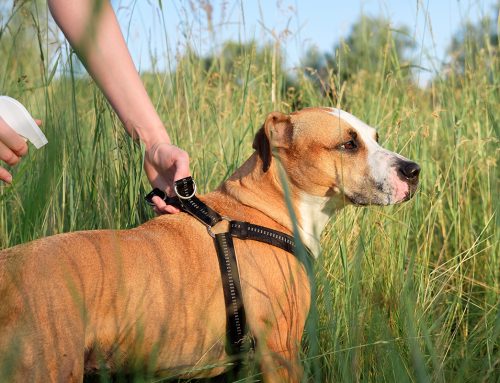Springtime can trigger allergies in people and pets that can lead to hay fever in humans and itchy, irritated skin in pets. Pollen, mold, dust mites, and other allergens cause significant discomfort and affect your pet’s quality of life. Understanding and managing seasonal allergies can help reduce your pet’s discomfort. The Aloha Veterinary Hospital team shares tips for dealing with seasonal allergies.
Seasonal allergy causes in pets
Seasonal allergies occur when pets develop a hypersensitivity to normal substances in the environment. Allergy triggers usually are present in greater numbers during specific seasons, especially spring and fall—although some are present year-round, which can make diagnosis more difficult. Common pet allergens include trees, grasses, weeds, mold spores, dust mites, flea bites, pet dander, and even humans.
Seasonal allergy signs in pets
Allergies cause the immune system to work overtime, producing inflammation in susceptible tissues. For pets, this translates to irritated and inflamed skin, ears, and anal glands. Common allergy signs include:
- Persistent scratching, chewing, or licking
- Red, inflamed skin
- Hair loss
- Scaling, thickened, or darkened skin
- Recurrent ear and skin infections
- Upper respiratory issues
- Watery or inflamed eyes
Diagnosing seasonal allergies in pets
Our team may suspect allergies based on your pet’s history and clinical signs, but a definitive diagnosis requires tests, which may include:
- Skin scraping to rule out mites
- Skin cytology to check for infections
- Fungal culture to rule out dermatophytes (i.e., ringworm)
- Blood allergy testing to identify allergens
- Elimination diet to rule out food allergies
Managing seasonal allergies in pets
Effective seasonal allergy management frequently requires lifestyle changes to reduce allergen exposure and medications to reduce the immune system’s overreaction to triggers. Proactive measures help prevent flare-ups that, once started, can be challenging to control. Most pets require one or more of the following:
- Bathing—Regular bathing with medicated shampoos helps remove allergens from your pet’s coat and reduces their skin bacteria and yeast populations. Many allergy shampoos also contain soothing substances to minimize itching and restore the skin’s natural barrier function.
- Wipe downs — Wiping your pet’s paws and belly after trips outdoors helps reduce allergen exposure.
- Air filters—A good home air filter and frequent home cleaning can reduce allergens in the air. Mitigation strategies, including encasing mattresses, pillows, and dog beds, can benefit pets with dust mite allergies.
- Flea control — Year-round flea prevention helps prevent or reduce flares from flea bites.
- Medications — Antihistamines, targeted anti-itch medications, corticosteroids, and immune suppressants can help manage allergic inflammation.
- Topicals — Sprays, creams, and other topicals can provide relief between medicated baths, or for more localized symptoms.
- Fatty acids — Oral and topical fatty acid supplements can help restore the skin barrier and reduce inflammation.
- Immunotherapy—Pets who undergo allergy testing are eligible to try immunotherapy. Allergy shots or oral drops expose pets to their allergens in a controlled manner, helping them gradually build up tolerance.
Long-term outlook for allergic pets

Managing seasonal allergies requires an ongoing commitment to following treatment plans, monitoring your pet’s progress, and making necessary adjustments. Allergies and allergy signs may change and evolve, often worsening over time. Keeping a journal of your pet’s signs and their treatment responses can help our team create effective long-term plans.
Regular follow-up visits can keep your furry pal’s treatment on track, although you should expect periodic flare-ups. Contact our team immediately if your pet’s allergy signs worsen, so we can work to control them quickly. Pets with severe allergies may benefit from consultation with a veterinary dermatologist.
Seasonal allergies can be challenging, but the right approach can make all the difference in your pet’s health and well-being. If you suspect your pet has seasonal allergies, or you need assistance developing or adjusting your pet’s treatment plan, contact our Aloha Veterinary Hospital team to schedule a visit and allergy consultation.







Leave A Comment